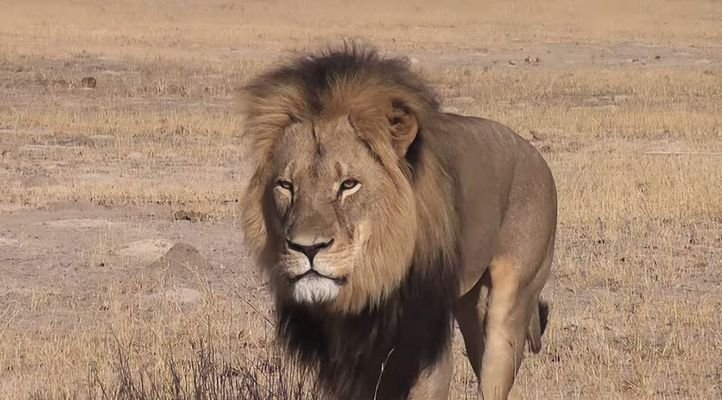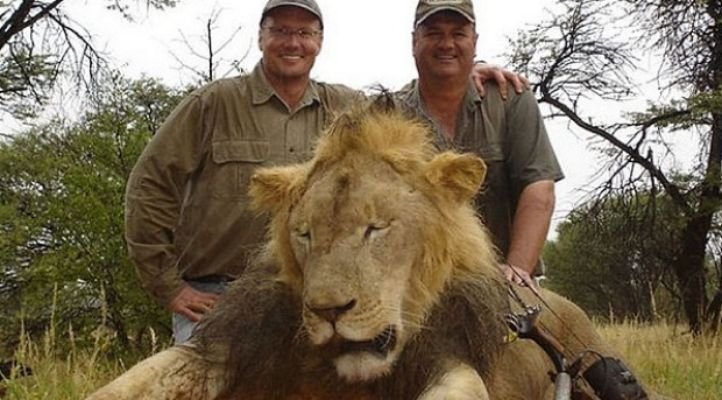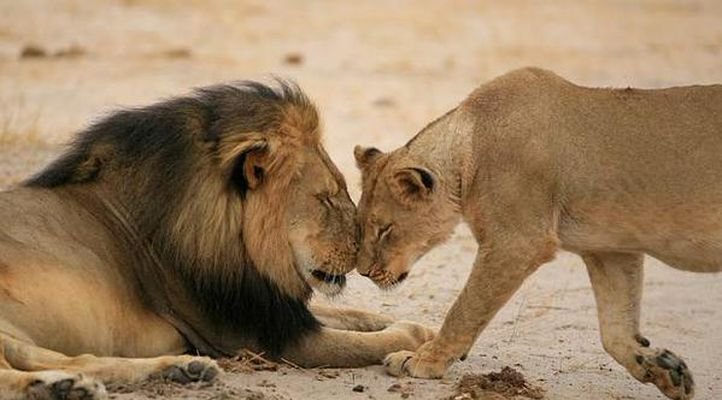Cecil has quickly become the most famous lion in the world, maybe even surpassing Simba. Unfortunately for Cecil, his fame does not come from Disney animation, but at the cruel brutality of an American dentist, Walter James Palmer. Cecil was the most famous lion of the Hwange National Park in Zimbabwe. He was killed on July 1 by a crossbow at the hands of Palmer.
Palmer lured Cecil outside the boundaries of the park with the bait of an animal carcass and shot him with a cross bow. This only injured the mighty animal, so Palmer stalked him for 40 hours before finally putting an end to his life.

Subsequently, Palmer skinned him and chopped off his head. The story of Cecil’s death spread like wild fire on the internet. Within a week, people from around the world condemned Palmer and this atrocious act. It also brought up some surprising issues about the economics and ethics of big game hunting and wildlife conservation — in Zimbabwe and globally.
The murder
Hwange National Park in Zimbabwe is a “free roam” zone under Zimbabwean law, which means that it is illegal to hunt within its confines.
When Palmer went to Zimbabwe in July, he found a way to circumvent this law. According to Zimbabwe Parks and Wildlife Management Authority, two locals are facing charges for assisting Palmer in his hunt. The accused are a hunter named Theo Bronkhorst and a local farmer identified as Honest Trymore Ndlovu.

The three of them strapped an animal carcass to a car outside Hwange, on Ndlovu’s farm, as bait to draw Cecil out. Once Cecil approached the carcass and left the boundaries of the park it became, theoretically, legal to shoot him, which Palmer did.
After the first shot, Palmer stalked the wounded animal for 40 hours and eventually killed him. The entire ordeal allegedly cost Palmer $50,000.
The outrage
A part of the global outrage comes from the brutality of the act and the cynical way in which Palmer circumvented Zimbabwean law in order to kill Cecil.
However, that is not enough to explain the extreme outrage that has resulted. Big game hunting is quite common and skinning beautiful animals like lions happens all the time. This case was different.
This is primarily because of the lion itself, Cecil was somewhat of a celebrity in Zimbabwe. He was a mascot for the Hwange National Park and loved by all of Zimbabwe for his black mane. According to The Guardian , he was “One of Africa’s most famous lions and the star attraction at the Hwange National Park”.
Angry about tragic, senseless death of #CecilTheLion too? Support groups like @WildAid working to conserve species http://t.co/y0nppfipuZ
— Richard Branson (@richardbranson) July 29, 2015 Is there a #WouldLikeToPullOutWalterPalmerTeethOutWithMyBareHands petition going around? #CecilTheLion
— Rupa Subramanya (@rupasubramanya) July 29, 2015 The very idea of killing for fun is uncivilised, worse that countries should earn revenues from it #CecilTheLion https://t.co/Hzm3Un476A
— Shekhar Gupta (@ShekharGupta) July 29, 2015 We will never learn of the damage we have done until there is nothing left. #CecilTheLion
— Theo Rossi (@Theorossi) July 29, 2015 Over and above all of this, Cecil also had an international profile. He was part of an Oxford University study on lion conservation in Zimbabwe.
All this combined is what led to the extreme outrage, that has lasted the past few weeks, over the treasonous act committed by Palmer.
The game
Palmer is just one player in a large and ongoing game. The business of trophy hunting has been going on for decades. It is as old as man itself. Many high profile individuals have indulged in this sport for years, including Theodore Roosevelt, Ernest Hemingway, William Faulkner and James “Wildman” Moorehead.
According to the Washington Post , South Africa’s big game hunting industry earns more than $744 million a year. It creates 70,000 jobs annually and attracts 9000 trophy hunters, mostly from America. There are some safaris which are completely artificial, for which people can pay up to $20000, to hunt animals that have been bred for this game and are in an enclosed space.
When it is done legally, the money is used to help the conservation effort.

last image of Cecil the Lion | Source: Twitter
There is an on going debate over this issue, where some argue that legal practices actually help deter illegal hunting and the death of animals such as Cecil. They even claim wildlife hunting can help weed out the weak so the population can thrive and ensure the proverbial survival of the fittest.
Regulated hunting has even been backed by organisations such as the US Fish and Wildlife Service and the World Wildlife Fund.
On the other hand, the Oxford researchers who were tracking Cecil believe legal hunting hurts the lion population inside the Hwange park. ” Each removal of a male lion by hunters on the borders of the park created a ‘territorial vacuum’ which drew males from further inside the protected area into boundary areas, where they too became vulnerable to hunters,” as reported in the Vox.
There can be arguments made for and against legal hunting. However, as for Cecil his death was completely uncalled for and also illegal, in terms of hunting rights. Even if Palmer does not face any legal retribution, the global outrage may have an impact on the future of his hunting activities. It may even influence Zimbabwean law, in which it is still legal to poach lions.

















